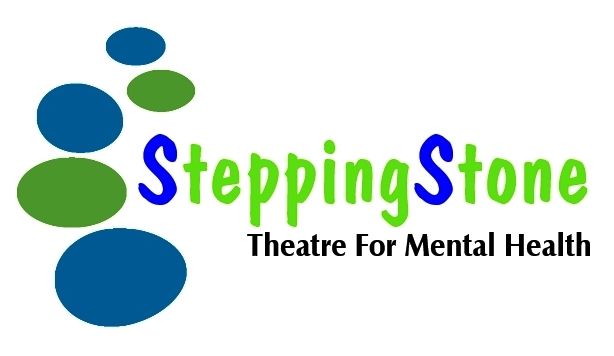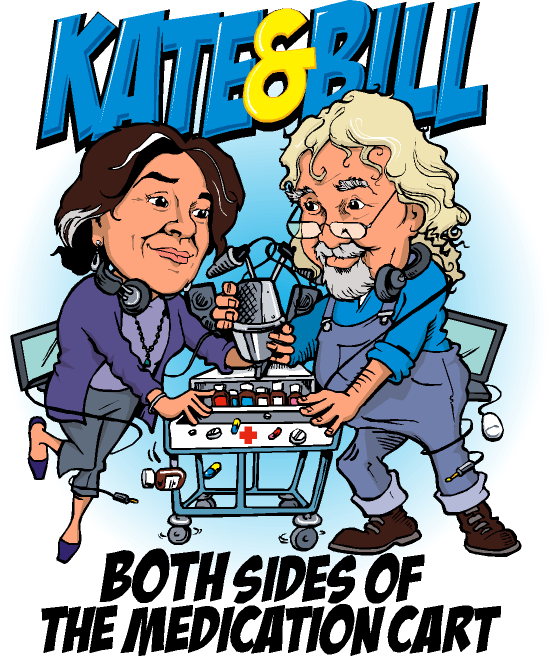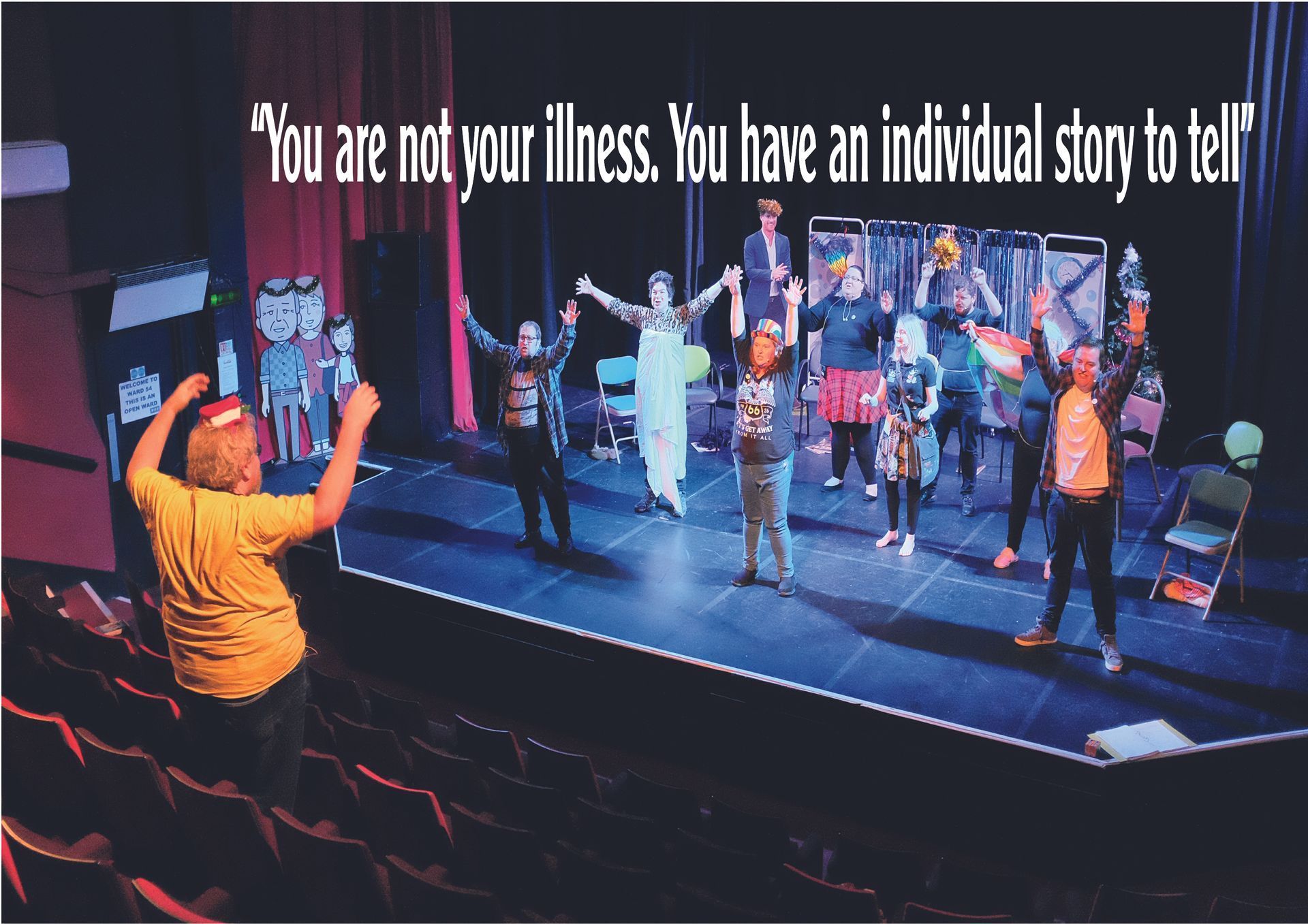
What Is Stepping Stone Theatre for Mental Health?
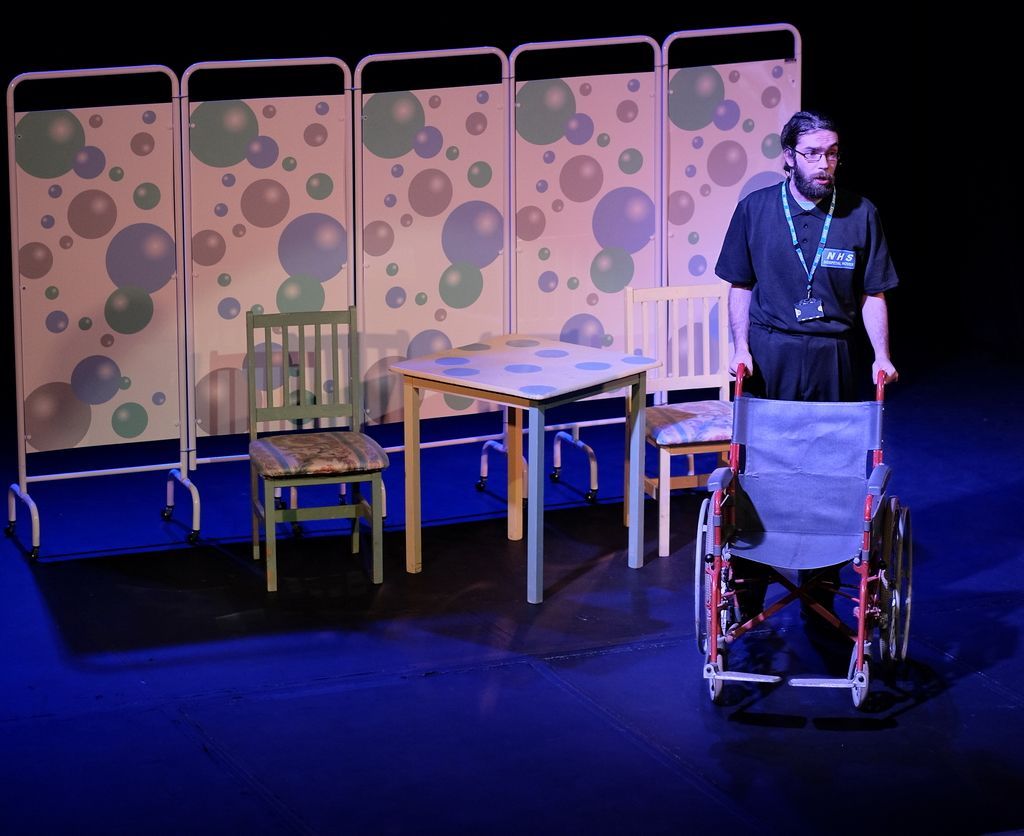
Through creative endeavours such as theatre, singing, writing, storytelling; we offer companionship and a sense of inclusion, for people living with long term mental health issues and challenges. We run online creative projects, such as pod casts, on line live interactive sessions and writing groups.
We offer a weekly walking group in which we encourage people to take gentle exercise and to disclose and talk about things which may be affecting their mental health.
Members share their issues with us and each other and in this way they are promoting good mental health and helping each other and themselves. This intervention means problems are solved before they get to crisis levels; grass roots, creative peer support.
Aims are to destigmatize mental illness regardless of personal history and background, and create a more compassionate community. Stigma is the number one reason why people do not often seek professional help and support. By making mental illness less ‘scary’ and more acceptable we are encouraging people to get help quickly and reduce the episodes that can reach crisis or even suicide.
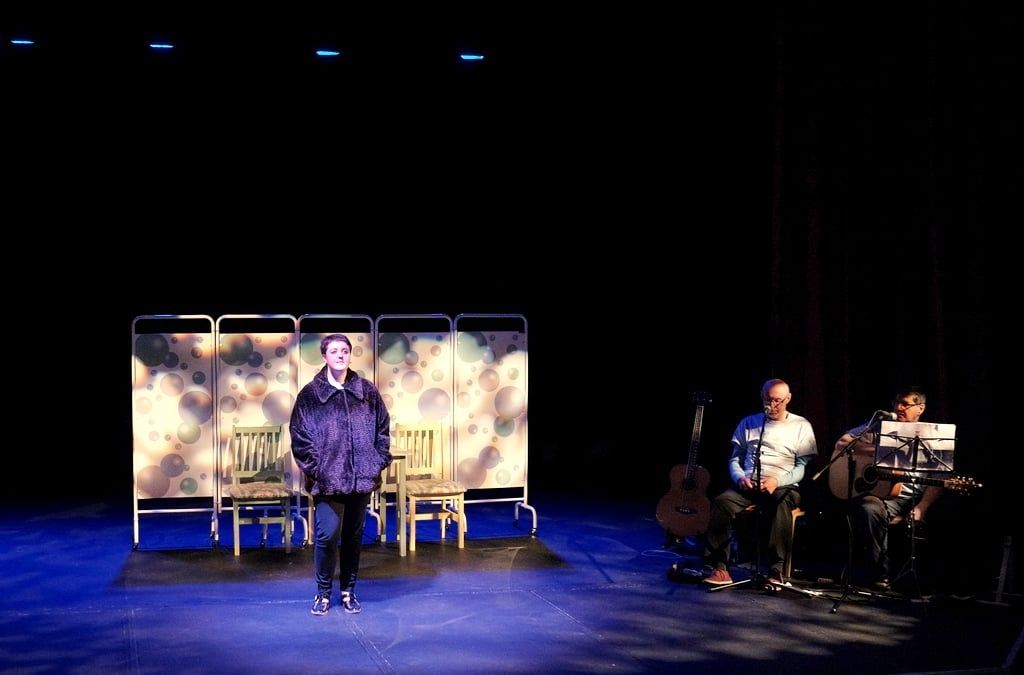
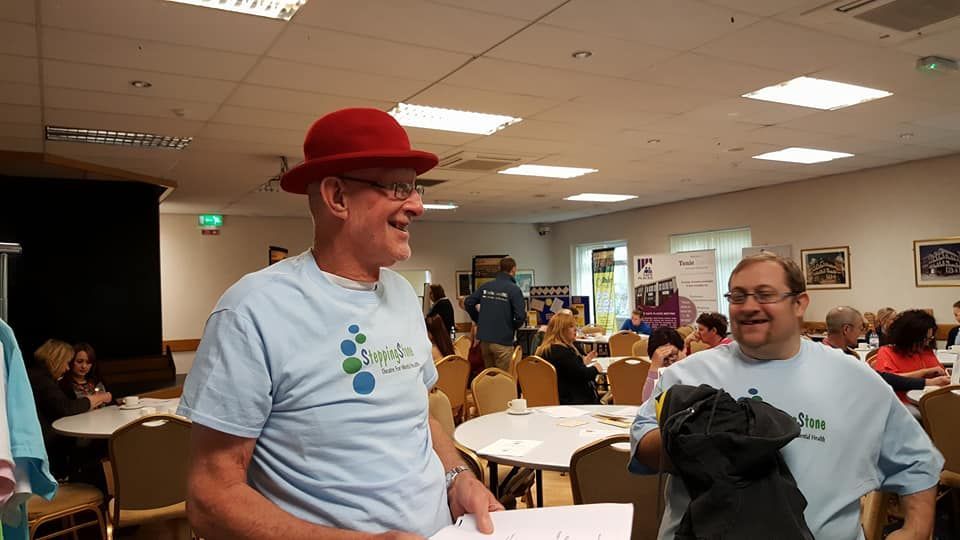
"A SMILE IS A CURVE THAT WILL STRAIGHTEN OUT MANY THINGS"
All the members have what they call, “a sense of purpose”. And some have even said, (and we get very emotional by this), “Being part of Stepping Stone Theatre for Mental Health has saved my life”. Lives have been saved and attitudes towards mental illness have evolved.
As well as the practical side of Stepping Stone, We offer companionship and a sense of inclusion. Members share their issues with each other and in this way they are promoting good mental health and helping each other and themselves. This intervention means some problems are solved before they get to crisis levels. We don’t just disclose, we, as a group, offer practical solutions. Our group is fast becoming its own support network, as we meet on a regular basis out of the sessions, to go for coffee or a meal at someone’s house to discuss our next creative endeavour. It is peer support at a lived experience, grass roots level. Making theatre together is a deeply cathartic experience and the aim; to enhance wellbeing through creativity as theatre was created to tell the truth about life.
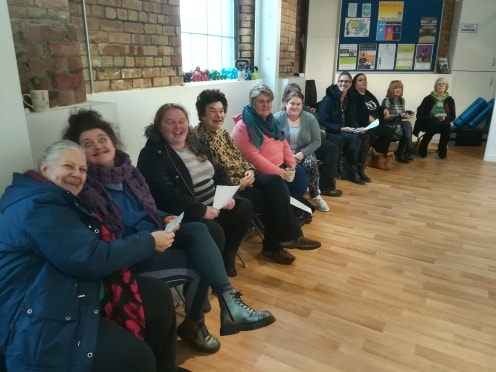
"Mental health encompasses emotional, psychological, and social well-being, influencing cognition, perception, and behaviour. It likewise determines how an individual handles stress, interpersonal relationships, and decision-making"
Debunking myths about mental illness
"STOP THE STIGMA - STOP THE SILENCE"

